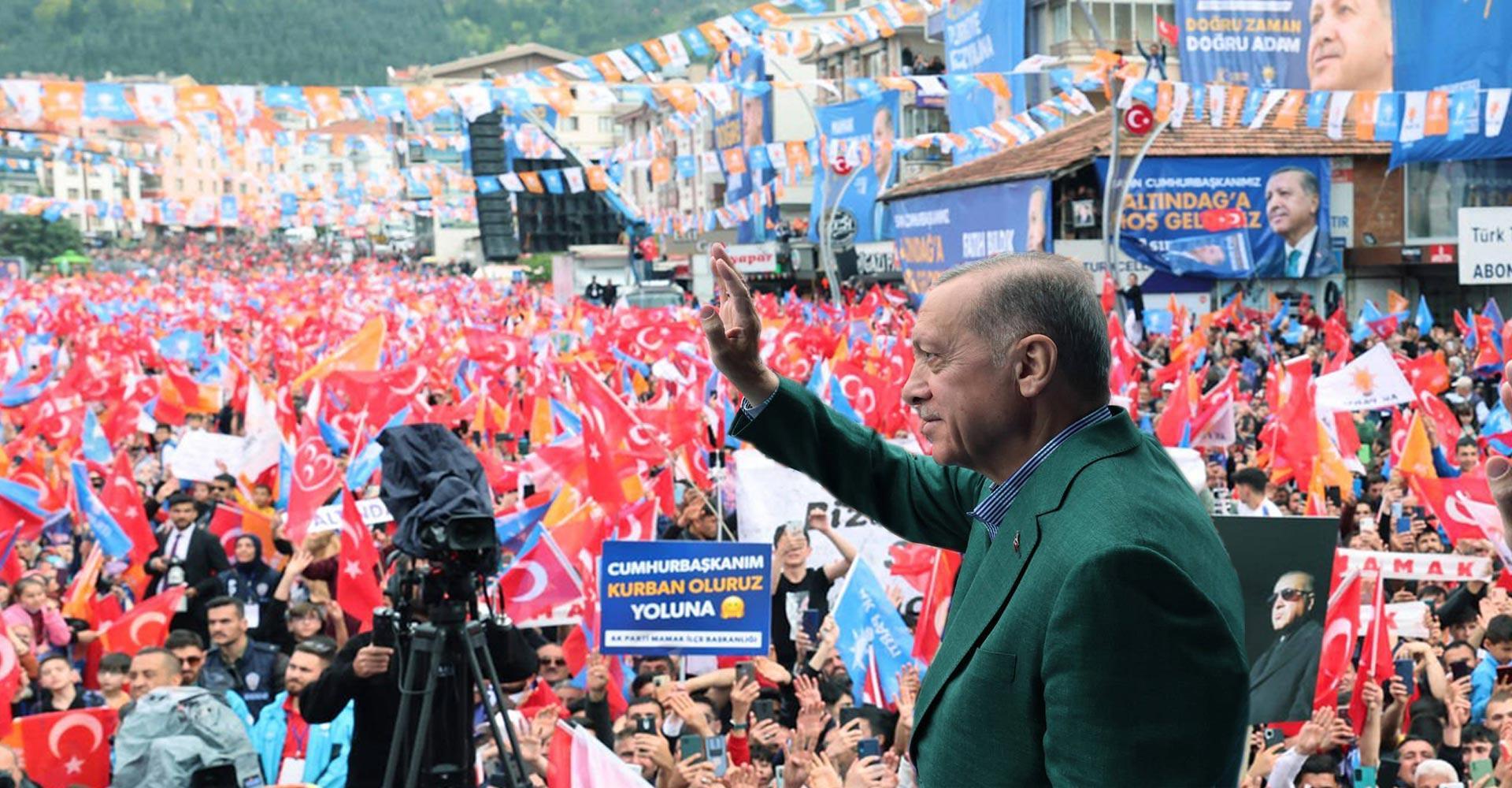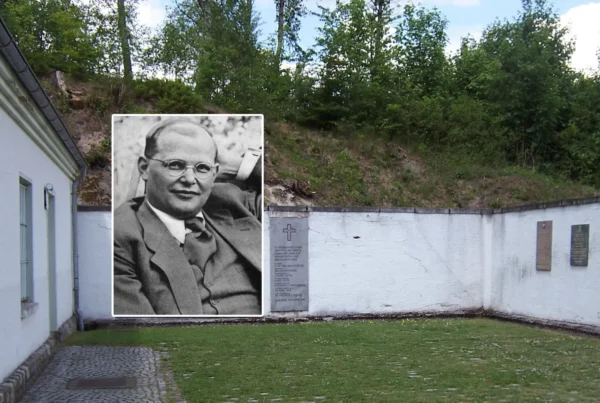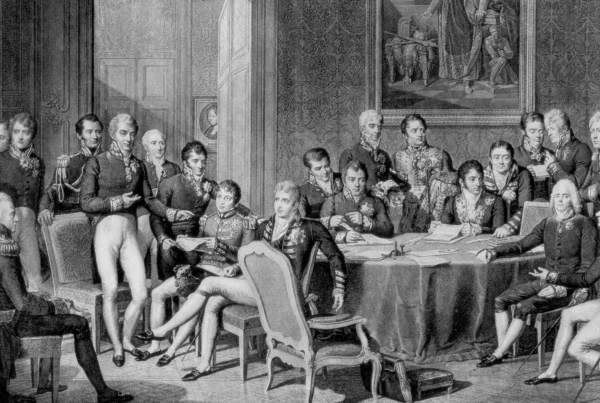Despite Turkish inflation peaking at 85%, deadly earthquakes in February which claimed more than 50 000 lives, an ongoing divisive migration crisis and the Kurdish issue, incumbent President Erdoğan and his party the Adalet ve Kalkınma Partisi (AKP, Justice and Development Party), were victorious in May’s presidential and parliamentary elections. Erdoğan has been endorsed by a wide range of countries with differing political systems.
Meric Sentuna Kalaycioglu, 20 June 2023
Arabic version | Russian version
In the aftermath of Turkey’s May elections, amidst an inflation peaking at 85% in the preceding months, earthquakes in February that claimed more than 50 000 lives, a migration crisis and the Kurdish issue, incumbent President Erdoğan and his party AKP once again assumed power in the parliament and in the presidential office. Despite AKP having its worst result since 2002, Erdoğan’s calculated steps towards forming the “People’s Alliance”, a partnership with the nationalist and far-right Islamist parties (the Nationalist Movement Party, MHP; the Great Union Party, BBP and the New Welfare Party, YRP), led to victory. He defeated the Nation Alliance, headed by Kemal Kılıçdaroğlu, the leader of the main opposition party, CHP (Cumhuriyet Halk Partisi), founded by Mustafa Kemal Ataturk in 1923.
With a massive turnout of 86%, approximately 56 million people at home and abroad cast their vote in the two rounds of elections on 14 May and on 28 May. In the hours following Erdogan’s declaring victory, leaders around the world congratulated Erdoğan via Twitter and by publishing official announcements. Vladimir Putin of Russia addressed him as “dear friend” and he was not alone in so addressing him. Donald Trump, the 45th President of the United States of America, made it clear that he knew Erdoğan well and sees him as a “friend”. Venezuelan President Nicolás Maduro, Pakistani Prime Minister Shehbaz Sharif and Qatar’s Emir Sheikh Tamim bin Hamad Al Thani called him “brother”. However, other world leaders, in particular the heads of the EU Member States, as well as heads of international organizations such NATO, the European Commission and the European Council, employed colder and more official language, addressing him as “the President”.
For the US and the UK, Turkey is a key NATO ally. For China, Turkey is a “strategic partner”. For France, Turkey is a partner with whom they will overcome the “great challenges of returning peace to Europe, the future of their Eurasian Alliance and the Mediterranean Sea”. For the German Chancellor Olaf Scholz, Turkish-German relations are “deeply intertwined” and he wants to continue this alliance. Germany has the largest Turkish population next to Turkey. Ukrainian President Volodymyr Zelensky noted the personal role of Erdoğan in (hopefully) continuing the “Grain Deal” for global food security.
Despite Turkey’s continued veto to Sweden’s bid to join NATO, citing concerns about Sweden’s providing a safe haven to members of the Kurdistan Workers’ Party (PKK), which Ankara considers a “terrorist” group, Swedish Prime Minister congratulated Erdoğan on his re-election citing “our common security is a future priority”. Turkey, the US and the EU have categorized the PKK as a terrorist organization.
Armenia, with whom Turkey has not had diplomatic relations since 1993 because of the war in Nagorno-Karabakh, hopes for full normalization of relations between Armenia and Turkey.
The official inauguration ceremony took place on 3 June 2023 in Ankara. Ankara hosted high level officials from Cuba, Hungary, Venezuela, the Balkans, Central Asian Turkic Republics, states in the Caucasus region including Armenia. They also hosted African and Asian countries including the Republic of the Congo, China, Guinea, Lebanon, Russia, Pakistan and Senegal. The representation of 78 states included 21 presidents, 13 prime ministers, presidents of assemblies, ex-presidents and ex-prime ministers. There was also representation from eight international organizations such as NATO, the Organization of Turkic States and the Organization of Islamic Cooperation. But there was a notable lack of western European leaders participating in the ceremony.
The difference between the countries which conveyed congratulatory messages and those that actually participated in the inauguration ceremony is somewhat of a paradox. During the election campaign, Erdoğan employed a completely anti-Western narrative in contrast to his opponent Kılıçdaroğlu’s pro-European Union position. Despite this, European leaders consider Erdogan a crucial partner for the EU and NATO. After years of accusing Turkey of having a dysfunctional democracy, the responses of Western world leaders is interesting, to say the least.
Erdoğan’s famous motto “the world is bigger than five” has been used since 2103 as a critique of the current structure of the UN Security Council, referring to its permanent members–China, France, Russia, the US and UK. Considering the list of states represented at the inauguration ceremony is considered, it would suggest that his motto has been effective. Erdoğan has been endorsed by a wide range of countries with differing political systems. Erdoğan is a pragmatic politician. Choosing allies on the basis of common interests, instead of common values or alliances, or to paraphrase St. Paul in his letter to the Corinthians: you cannot be all things to all people.







